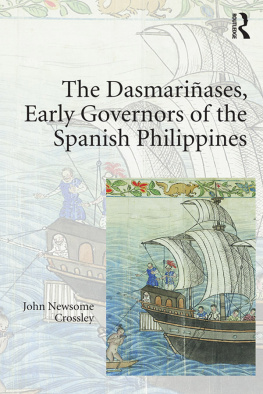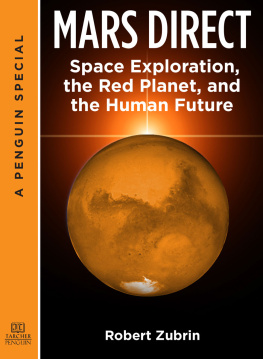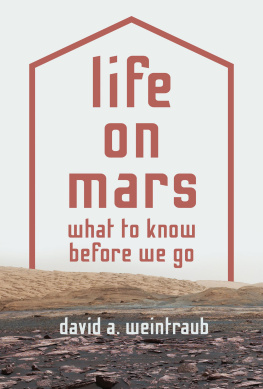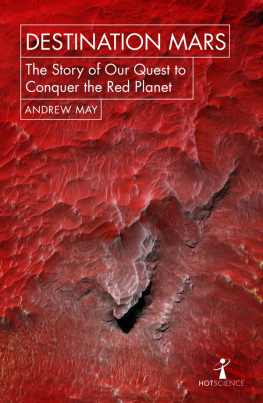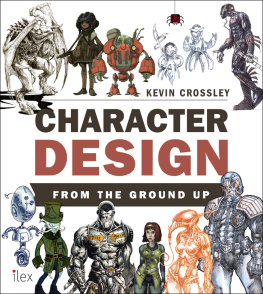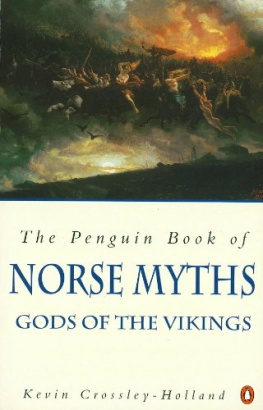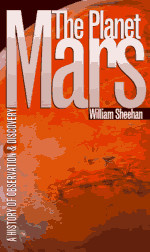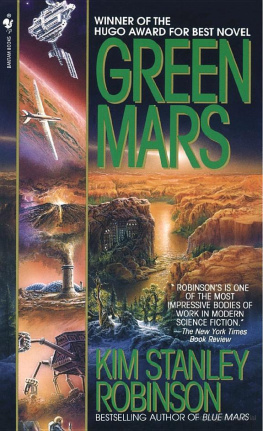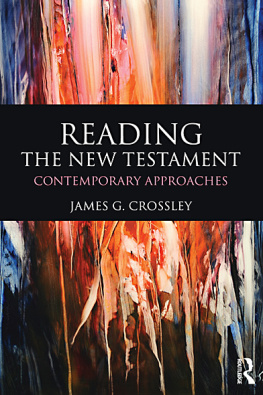IMAGINING MARS
Wesleyan University Press
Middletown CT 06459
www.wesleyan.edu/wespress
2011 Robert Crossley
All rights reserved
Manufactured in the
United States of America
Wesleyan University Press is a member of the Green Press
Initiative. The paper used in this book meets their minimum
requirement for recycled paper.
Library of Congress Cataloging-in-Publication Data
Crossley, Robert.
Imagining Mars: a literary history / Robert Crossley.
p. cm.
Includes bibliographical references and index.
ISBN 978-0-8195-6927-1 (cloth: alk. paper)
1. Mars (Planet)In literature. 2. Science fictionHistory
and criticism. 3. Mars (Planet) I. Title.
PN3433.6.C76 2010
809.93329923dc22 2009052182
5 4 3 2 1
To Andy & Corinne Crossley
CONTENTS

ILLUSTRATIONS
PREFACE
Of what value is the history of an error? That was the question that first prompted me to undertake the research that led to the writing of Imagining Mars. A century ago, Percival Lowell, convinced of the reality of the Martian canals that he thought he had seen from his observatory at Flagstaff, was keeping up a relentless campaignin books, lectures, popular articles, and widely reproduced mapson behalf of his notion of a Mars populated by a heroic race staving off extinction through the monumental engineering feat of a global irrigation system. Although challenged and discredited by most scientists, Lowell was the principal figure in the so-called Mars mania at the turn of the twentieth century and he had a strong popular following that persisted long after his death in 1916. Lowell never accepted that the work he produced was itself a dexterous if somewhat willful blending of science and fiction, but his eloquently articulated and beautifully illustrated figments took hold on the public imagination in spite of the scorn of astronomers and generated a flood of literary fantasies that lasted well into the 1960s. Even in the aftermath of the mechanical exploration of Mars by NASAs evocatively named Mariners, Vikings, and Pathfinders, which shredded the last vestiges of Lowells theories, writers have continued to pay homage to Lowell by naming Martian cities and spaceships after him and by crediting him with awakening their imaginations. As the scientific exploration of Mars has accelerated since the first flyby photographic missions of the 1960s and as public interest in that exploration has grown, the time seems to have come for a history of the literary images and narratives of Mars.
In exploring the literary history of Marsand particularly that history from 1877 to the presentI have had three aims: (1) to chart the ways in which the literary and scientific perspectives on the planet have intersected and diverged; (2) to explore how specific literary texts have used and abused, ignored and deployed science in order to create usable myths and parables; and (3) to find in the record of fiction about Mars glosses on modern cultural history. The very large body of imaginative writing on the subject of Mars contains genuine masterpieces, a fascinating array of partly successful experiments, a substantial number of mediocre and uninspired works, and some truly abominable examples of bad writing. For the sake of constructing a comprehensive literary history of Mars, the good, the bad, and the ugly all play important roles, but I have not hesitated to offer candid evaluations of the artistry of the books that I discuss since, for me, literary history and literary criticism work in tandem. While I have wanted to be comprehensive, I have found it necessary to be selective. I have focused largely on novels about Mars (and on one epic poem) but have dealt with only a few of the many short stories on the subject. And I have taken the idea of literary history fairly strictly; while I make occasional passing references to science-fiction films, I have not tried to cover the various cinematic treatments of Mars or film, television, and comic-book adaptations of novels about Mars.
This book begins with a meditative chapter on the human meanings of Mars. Ranging over histories and cultures and considering Mars in the ancient, early modern, and contemporary eras, this chapter asks how, why, and to what effect Mars has been invested with human significance. It explores relationships among the Marses seen with the naked eye, through the telescopic lens, and with the minds eye as well as the various Marses that have been perceivedor createdby scientists, writers, and visual artists; it examines the nature of storytelling and the generation of myths old and new about Mars; and it surveys some of the uses to which Mars has been put as a mirror of terrestrial concerns. also first lays out in broad terms an overarching concern of the entire book: how the literary and scientific imaginations collaborate with each other and exist in tension with each other.
One of my preoccupations throughout this book, stimulated by that initial question about Lowells mistake and its impact, has been to probe the relationship between literature and science in the representation of Mars. At times, the literary mind has been energized by scientific investigation, and at other times has seemed quietly or fiercely resistant. New information about Mars has been sometimes welcomed and sometimes spurned by writers. Some writers have been left literally speechless, or at least blocked, by the latest Martian news from observatories and laboratories; others have responded with an out-pouring of inventive, scientifically informed fiction. Literary Mars is now old enough that it can be said to have a life of its own independent of scientific research, but it also appears that when writers have tried to rely on that imaginative independence and ignored or defied new astronomical knowledge, the work they produce emerges dull and damaged without the fertilization of science. I have wanted to find out how this difficult, paradoxical relationship between the literary mind and the scientific mind plays itself out on the subject of Mars over the past century and a half.
As I pursued my research, I discovered that there is much more to the literary history of Mars than Lowells great mistake. For one thing, the sheer number and variety of fictions about Mars far exceeded my anticipations. Before Lowell came on to the scene in the middle of the 1890s, a rich history already had developed of speculation and mythmaking about Mars, a history that, in the era of the telescope, produced apparent sightings of Martian vegetation, seas, lakes, and clouds. The modern collaboration of literature and astronomy can be said to begin with a specific event, itself of mythic implication, that opens : the meeting between the young John Milton and the old Galileo, the latter under house arrest by the Inquisition. For nearly two and a half centuries after that suggestive encounter of two gigantic minds of seventeenth-century Europe, astronomical investigation fed literary speculation, although Mars was less prominent in the earliest speculations than the nearby Moon or the telescopically more dramatic planetsgiant Jupiter and ringed Saturn. But by the mid-nineteenth century, when fantasies of lunar life no longer could be entertained seriously, attention shifted to Mars, the planet that the English astronomer William Herschel had said in 1784 was most like our own. The indisputable turning point came in 1877, when the American Asaph Hall first located and named the two tiny moons of Mars and when Giovanni Schiaparelli in Milan observed thin, streaky markings on the Martian surface and called them
Next page

